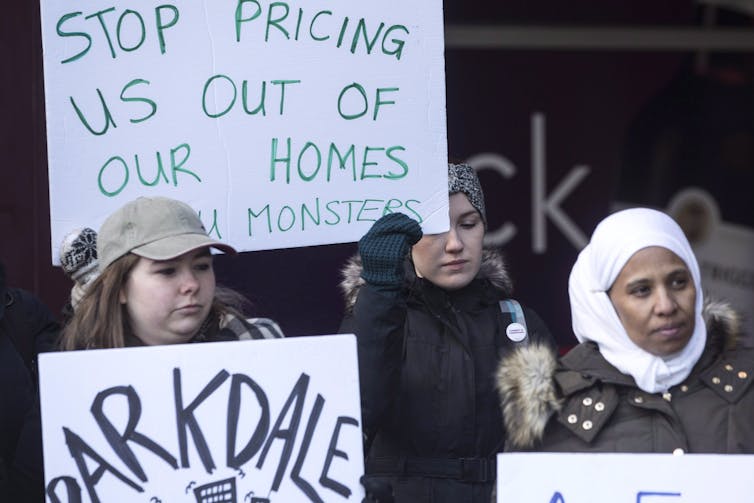One factor driving the housing crisis across the country is a shift away from publicly built housing toward large corporate-owned buildings where, as today’s guest Prof. Nemoy Lewis puts it, “housing is treated as a commodity, not a human right.”
For many people living in Canada, housing has emerged as one of the most challenging issues. This is especially true in our largest cities, where financial stress plagues many households.
Home ownership is widely out of reach and for renters, housing is scarce, expensive and precarious.
In Toronto, Canada’s largest city, vacancy rates are at their lowest levels in nearly two decades and average rents have jumped nearly 10 per cent — the sharpest increase in more than a decade. Last week’s rent strike in Toronto is just one indication that Canadians need solutions.
According to today’s guest, Prof. Nemoy Lewis from the School of Urban and Regional Planning at Toronto Metropolitan University, one of the factors driving this affordability crisis has been a shift away from publicly built housing toward large corporate-owned buildings. And the result, he says, is that now: “housing is treated as a commodity, rather than a human right.”
Prof. Nemoy discusses the disproportionate impacts these corporate landlords are having on Black and low-income communities — in income-polarized cities that are increasingly accessible to only a small group of wealthy people.

Read Also: Homelessness is Widely Misunderstood — and We Can’t Solve Problems We Don’t Understand
Source: Theconversation



